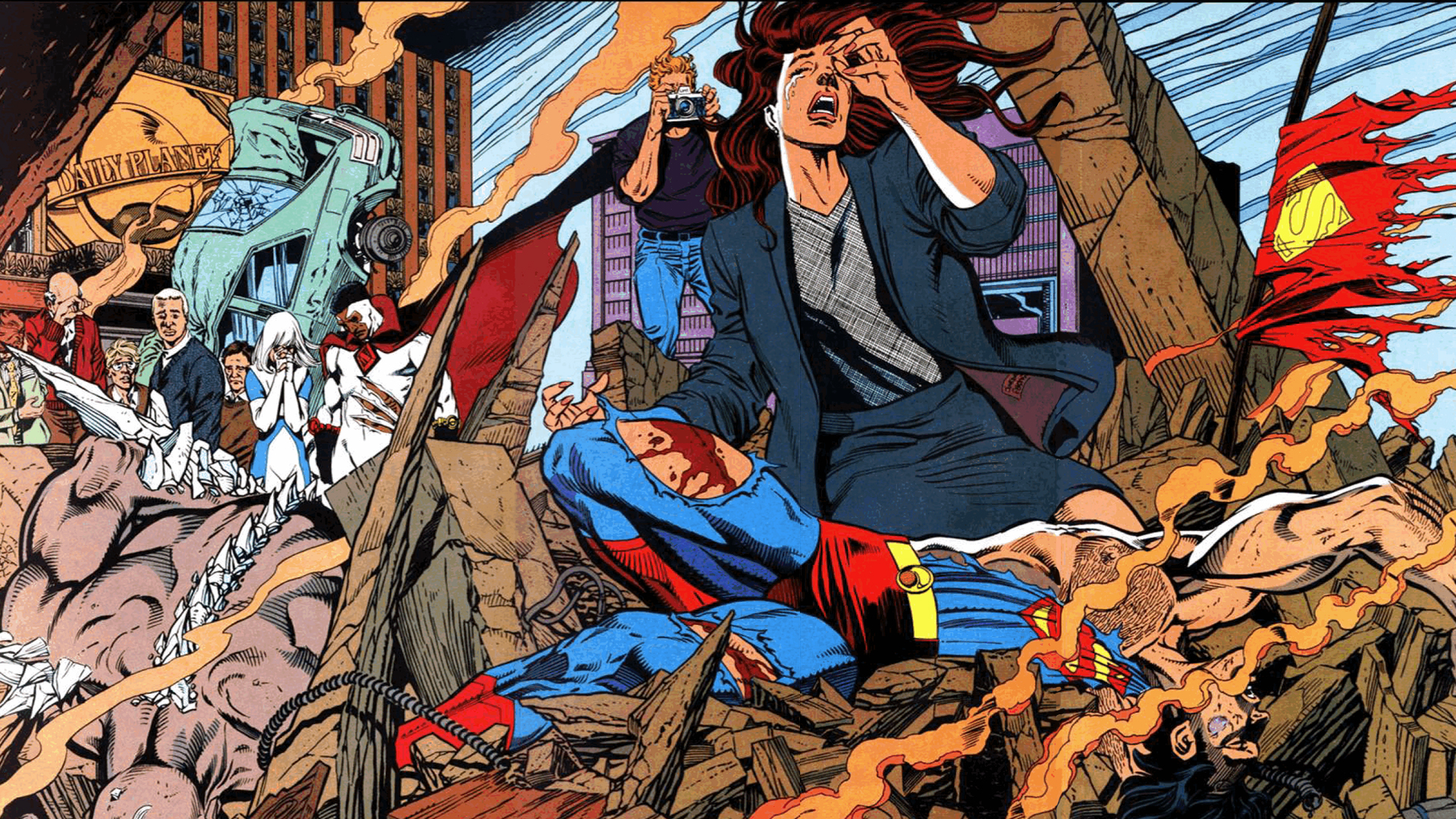 |
| The Death of Superman (1993) |
It's no secret that when a superhero dies, they aren't going to stay dead. The Death of Superman shook the world in 1993, but not even a year later, the Man of Steel was back and as healthy as ever. Even characters that were dead for much longer have been resurrected - for example, Final Crisis brought speedster Barry Allen back to life over 20 years after he died saving the multiverse. So, surely all a superhero's death means is that they won't appear in the books for a while, right?
Not necessarily. To understand death in comic books, you need to understand the nature of comic book characters. The biggest comics on western shelves mostly star stock characters: heroes and villains who are passed from writer to writer over the years. If a "Death of..." storyline were permanent, it would mean nobody could ever write new stories for that character ever again.
 |
| The Dark Phoenix Saga (1980) |
Therefore, it seems as if the solution is to simply stop killing off superheroes. We know they have to come back to allow other creators to have a shot at the character, so what's the point of killing them to begin with? Well, the point is that some of these superhero deaths are damn good stories.
Comics are all about suspension of disbelief. Before you even open a comic book, you know that the hero is going to win in the end - it's what they do. So why even read it? Because it's entertaining, it's exciting, it's moving. A good storyteller makes you believe it's all real - that it might not actually turn out okay this time.
 |
| A Death in the Family (1988) |
The same goes for stories where the heroes die. If it's written well enough, you find yourself actually thinking they won't come back, at least for a moment. Death in comics provides writers with the opportunity to tell a "final story" for that superhero - it's unlikely that any of us will live long enough to actually see the adventures of Batman or Superman come to an end, but Batman R.I.P. and The Death of Superman give us an idea of what it could be like.
Nothing these characters do or say is real, so why do people have to point out that their deaths aren't? Comics absorb you into a world where the universe really is at peril and real lives are at stake. They channel real-life experiences and blow them up into larger-than-life adventures to make you laugh and cry. Ultimately, it's not about what it means to the character, it's what it means to the reader - and that's why death in comics really does matter.

Comments
Post a Comment